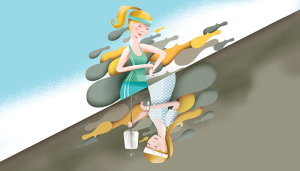#ChangeForGood
Almost three years ago I attended my first Havas Health Global Leadership Meeting. The theme was, “Change Faster”. It was a brilliant meeting, incredibly inspiring and a fantastic first taste of the network. It entirely validated our decision to join, and had me ready to change the world.
Except, on returning to Havas Lynx, whilst I was now beset on change, I had no idea where to start. On the 6th of October, I’ll be hosting the Havas Health Global Leadership Meeting in Miami, with Cris Morton. So that delegates can avoid similar confusion, the theme this year is very clear: #ChangeForGood.
Since that first meeting in January 2013, Havas Lynx has gone from strength-to-strength; building capabilities, winning awards, hitting targets and producing work that makes a real difference. At the heart of this success is an agile agency culture. We’re responding to the needs of the market, the needs of patients and healthcare professionals and the needs of our team.
I’m sure that managing an agency has never been easy. Certainly Mad Men provides an indication of the trials and tribulations of a previous – and less moral – era. But today, agencies must blend extreme diversity, from traditional creatives to engineers and mathematicians. Moreover, they then need experienced heads alongside digital natives who are ready to turn the working world upside down. And all this against increasing austerity, fiscal pressure and ambitions established in a golden age.
Changes to the market have been as profound as those within our agencies. We’ve moved from manufacturing brands to earning them, as we’ve witnessed the profound impact of our behaviour. We’ve moved from engaging consumers to prosumers, as we start to understand social dynamics. We’ve started to use creativity to maximise outcomes, and not points of sale.
Healthcare professionals and patients have also changed significantly, in both their behaviours and their expectations. Agencies are challenged to build relationships through new means, and in new ways. The format of the idea can now be as important as the idea itself.
We’re incredibly lucky. The world is amazing. Fuelled by technology, it changes every day; it’s fascinating, interesting and challenging, in equal measure. Our success is born from changing faster.









